|
This sign at the entrance to a construction site caught my attention a little while ago. For a simple message of 13 words, it managed to pack in an awful lot of errors! How many can you identify? Compare your list with the seven that I point out below. 1) Presentation consistency. In this sign every word is capitalised — except one (‘shall’). This is clearly inconsistent and indicates carelessness of presentation on the part of the writer. 2) Unnecessary capitalisation. As noted in (1), every word is capitalised in this sentence. There is no sensible reason to do this; as we all know, in English we typically capitalise only the words beginning sentences and proper nouns. It is not uncommon to find headings in which all the individual words are in capitals, but whole sentences like this are seldom treated so, even on signs. Take a look at the following UK examples and you’ll see that in each case the first words of each sign are capitalised, but not the other words. 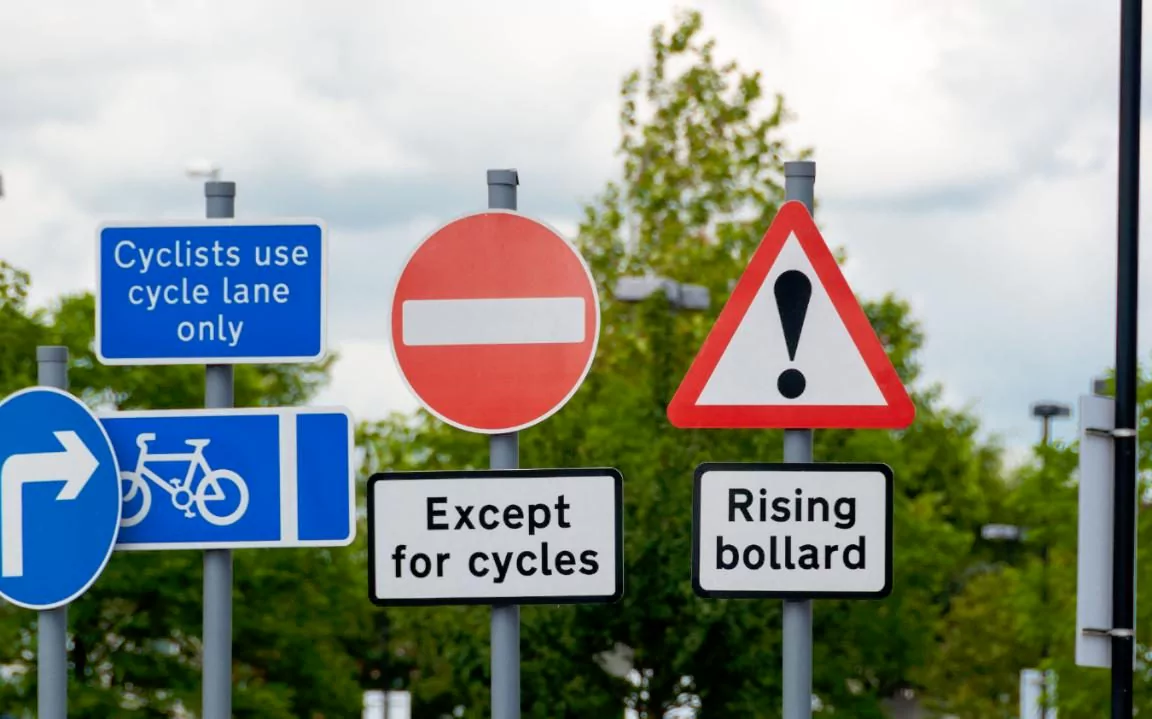 3) Redundant vocabulary: Consider the heading ‘Construction Site Area’. The words ‘site’ and ‘area’ have very similar meanings: a site is an area and an area is a site. So ‘construction site area' uses three words to express what could be said in two. Standard usage here would be simply ‘Construction Site’, as in the following example: 4) Incorrect use of ‘offenders’. In English, we use the word ‘offenders’ to describe a category of people who disobey a rule that we have just mentioned. That is certainly the case in this sign — the rule is ‘unauthorised entry prohibited’, so the 'offenders’ mentioned here must clearly be those unauthorised people who have broken the rule. In this kind of sign, however, we generally only mention ‘offenders’ in order to specify their punishment. In most cases, the word ‘offenders’ on signs is used after some kind of forbidden activity has been mentioned, and looks like this:
In our sign, the sentence in question is not specifying a punishment, and therefore the word ‘offenders’ is incorrect. What is needed is a word like ‘trespassers’. 5) Incorrect use of ‘shall’. The writer has included the auxiliary verb ‘shall’ in the sentence, ‘offenders shall enter at his own risk’. No auxiliary verb is required here. The most common form in which this expression is seen is ‘enter at your own risk’: However, ‘enter at own risk’ can also be used with a third person subject, as in the next picture. This means that if we want to use the word ‘trespassers’ on our sign, we could say ‘Trespassers enter at their own risk’. 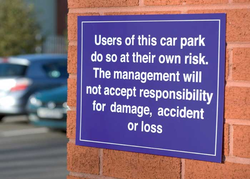 6) Lack of agreement between noun and pronoun. We all know the basic English rule of noun-pronoun agreement. Even if we change ‘offenders’ to ’trespassers’ as suggested in (4) above, the problem remains that there is a lack of agreement between the noun and the following pronoun, ‘his’. ’Trespassers’ is in the plural because it has generic reference; that is, it is referring to everyone who (potentially) enters without authorisation. Clearly, the following pronoun must be changed to ’their’ to agree.
7) Sexist language. Suppose that instead of changing ‘his’ to ’their’ as suggested in (6), we decided to change ’trespassers’ to a singular form, e.g. ‘Any trespasser enters at his own risk’. This is now grammatically correct. However, the word ‘his’ from the original sign is deeply problematic. The assumption introduced here is that the trespasser is male. In modern English, this old traditional usage of the pronouns ‘he’, ‘him’ and ‘his’ to refer to both male and female referents is no longer acceptable, and should be avoided. Summary: taking all 7 points above into account, how could be redraft this sign? I suggest the following: Construction Site Unauthorised entry prohibited. Enter at your own risk.
0 Comments
Your comment will be posted after it is approved.
Leave a Reply. |
About this blogThis blog arises from keeping an eye on English in Hong Kong. I often use signs, notices and advertisements that I see as starting points to write about English issues that commonly challenge Hong Kong writers. Archives
October 2017
Categories
All
|
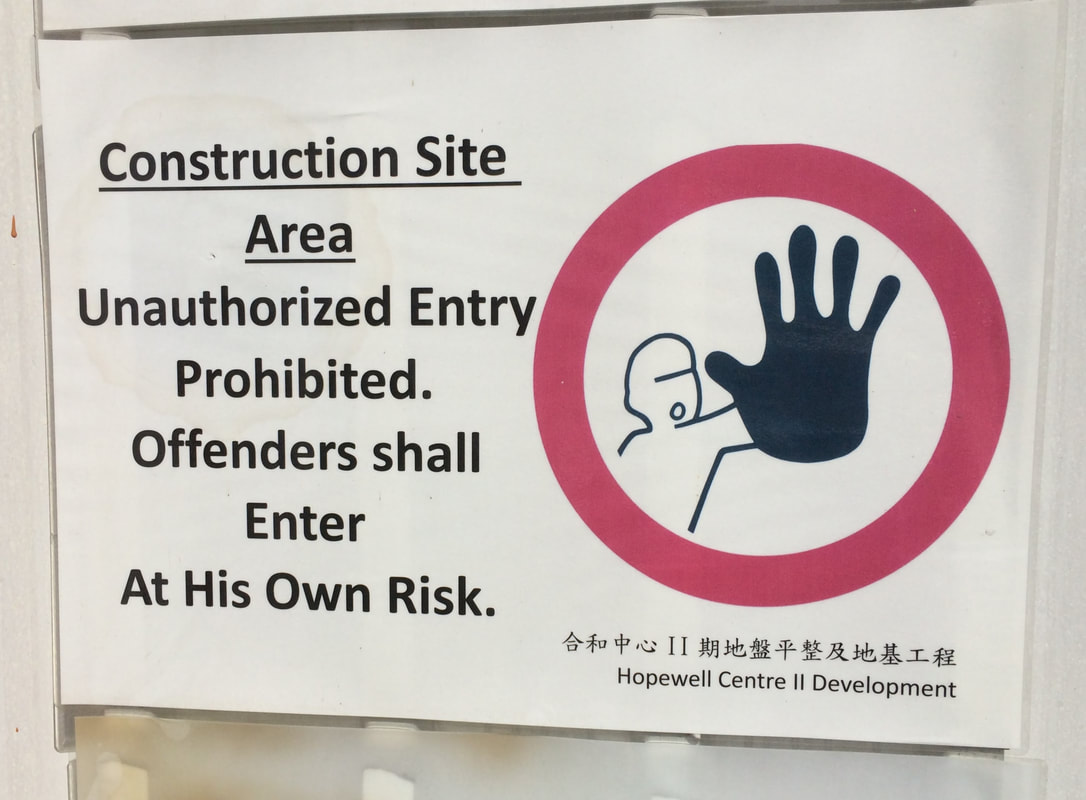
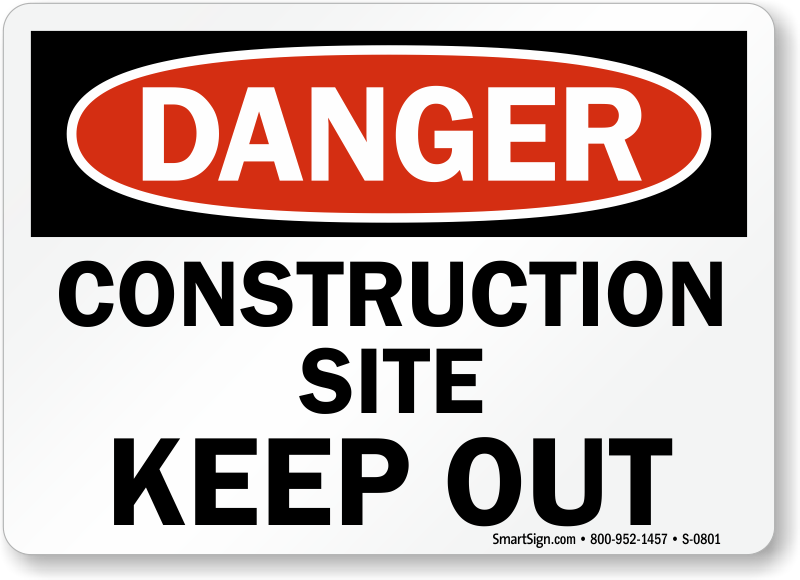
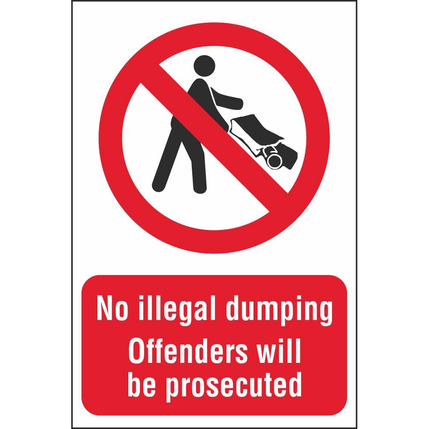
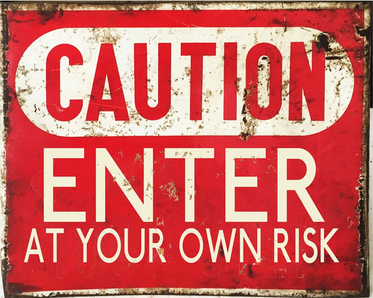

 RSS Feed
RSS Feed